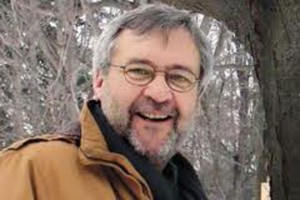Kuol Awan fled his home in southern Sudan when he was 9 years old. Now, for the first time in his life, he is able to look at a picture of himself as a child.

“[I was] looking at myself and could not believe how little I was when that happened,” Awan said. “I was really excited because I have no childhood pictures, so part of it too was to see is that really me?”
Awan is one of thousands of former refugees displaced as children during the Second Sudanese Civil War who are now able to reconnect with their past with the help of Lost Boys Reunited, an online database containing the profiles of child refugees from Sudan.
The online database was launched Sept. 21 for testing with the help of David Turkon, associate professor of anthropology at Ithaca College, who oversaw the project. The first profiles were sent to locations around the world yesterday.
Approximately 13,000 to 17,000 profiles are available for refugees to search, Turkon said. The profiles contain a picture of the refugees when they entered the Pineudo Refugee Camp in Ethiopia, a camp run by Save the Children Sweden, along with their social, medical and psychological history. Profiles are mailed to refugees free of charge.
Lost Boys Reunited is a project of Arizona Lost Boys, an outreach center based in Phoenix, Ariz., and founded by Ann Wheat in 2003. The center obtained the refugee profiles, which were collected by field workers in the late 1980s from a warehouse at the site of the camp.
Turkon, who was living in Phoenix at the time, helped organize the files and brought them to the college when the Arizona Lost Boys dropped the project. Turkon said a change in leadership shifted the center’s priorities.
“The new president [of the Arizona Lost Boys] wanted nothing to do with it — too much work,” Turkon said. “He wanted to put his efforts into other things he apparently deemed were more important.”
Turkon said a grant from the college allowed him to hire T.J. VanSlyke ’06, a computer science major at the college, to make the information easy to search and navigate.
“[The college] has been very supportive with this project, especially with the new administration,” he said. “The college is really trying to support and promote faculty research. It’s really a great thing to see.”
In 2006, Turkon said he traveled to Syracuse with two former students for a conference where 200 to 300 Lost Boys in the area were able to search the database for their profile. The results were met with success. When searches returned similar results at a 2008 conference in San Diego, Turkon said it was clear the records would have an impact.
“I think we had three computers running,” Turkon said. “These guys got on and many of them found their files, and they gave me their names. … That revitalized [the project].”
Once the data was organized, Arizona Lost Boys picked up the project again. Leon Hauck, web developer at Fulcrum Enterprises in Arizona, volunteered to change the format of the file so the information could be published online.
Turkon said he helped the center keep the project alive through the changes in leadership.
“It’s been in fits and starts,” Turkon said. “There are times when I thought it would never get done. From 2004 to 2010, it’s been in the works, and it was not easy to get done.”
After immigrating to the U.S. in 2001, Awan said he found out about the center at the Lost Boys and Lost Girls Reunion and Conference in 2004 and began to volunteer. Five years later, Awan was elected director.
Wheat said it has always been her intention to give the Lost Boys control of the center. After watching the project that started as a phone call evolve into a searchable database, Wheat said she is excited to see what will come next now that the profiles are finally accessible.
“We just threw a pebble in the pond, and the ripple effect has started,” Wheat said. “We’re not even going to know for a good, long while what all of the ramifications are.”







